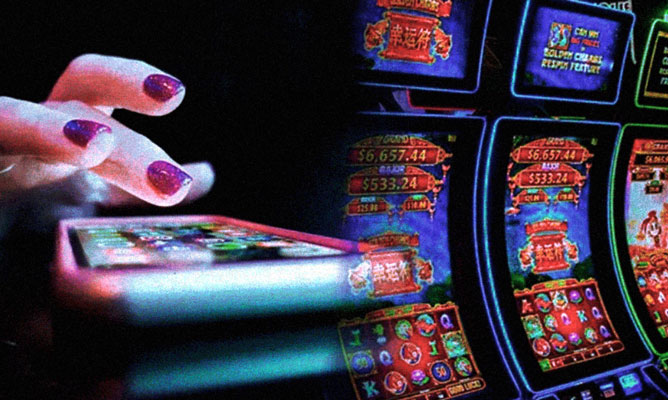This article makes you think about the moral issues that come up with virtual slot machines in video games. It looks into the debate and gives you ideas on how to deal with these tough problems.
The gaming industry has seen a rise in the use of slot machine-like features in popular video games. It’s about how popular video games are using features that are similar to virtual slot machines, which have caused a lot of ethical questions. As the game industry keeps pushing the limits and luring players in with tempting prizes, it is important to look into the moral issues that come up with these tactics and how they affect players and society as a whole. For those interested in exploring real slot mechanics without financial risk, you can visit https://casinosanalyzer.ca/free-spins-no-deposit/50-dollars to see how actual no-deposit bonus systems work in licensed online casinos.
The Rise of Mechanisms That Work Like Slot Machines
Slot machine-like features have made their way into many types of video games, from mobile apps to computer games. Random prizes can be anything from in-game things and characters to cosmetic changes. These features give players a thrill of chance. Game designers have used the psychology of prizes and expectations to make games exciting, which keeps players interested.
The gambling business is one of the main sources of ideas for these systems. There are similar psychological causes that make it fun to win a prize in a slot machine or a rare item in a loot box. Because players are urged to spend real money to get these chance prizes, this has raised worries about the risk of addiction and abuse. Notably, OLG is projecting its online gambling business will top $1 billion and grow by 41% in just four years, highlighting how lucrative and fast-growing these models have become, not only in traditional casinos but also across digital entertainment sectors.
The Moral Predicament: Vulnerability of the Player
One of the most important social issues to think about when it comes to virtual slot machines in video games is how vulnerable the players are, especially younger ones. Especially kids and teens may be more tempted by the thrill of gambling-like games without fully understanding how they can hurt their finances.
Studies have shown that teenagers’ brains are still growing, which makes them more emotional and less able to make smart choices. Young players may not appreciate the chances of winning or the expense of repeated microtransactions in chance games. Lack of understanding may lead to overspending, financial troubles, and addiction.
What it Does to Mental Health
People who play virtual slot machines are also worried about how they might affect their mental health. A dopamine rush can happen from the ongoing loop of waiting for a treat and getting it. Happiness and excitement may result. This may lead to reliance and compulsions like gaming addiction.
Players who love games with these elements may get frustrated, nervous, or sad when they don’t obtain the rewards they seek. These negative sentiments may be exacerbated by microtransactions and the urge to spend real money on game improvements. Common mental health effects:
- Increased stress and frustration after repeated losses.
- Anxiety caused by the pressure to keep up with spending.
- Mood swings are triggered by inconsistent rewards.
- Feelings of regret or guilt after spending money impulsively.
Youthful or sensitive gamers are particularly at risk since gaming may swiftly lead to emotional anguish.
What Loot Boxes Are and the Chance Part
Loot boxes, a popular video game slot machine, need luck. Players purchase these boxes without knowing what’s inside. Lack of assurance may be thrilling, irritating, or disappointing.
The moral concern is whether this random portion is fair to participants. Do they receive excellent value, or are they exploited? Some argue the game isn’t obvious and that rare items and characters are concealed on purpose, making it impossible for players to make sensible selections. Common criticisms:
- Lack of transparency about drop rates for valuable items.
- Misleading animations that imply higher chances of winning.
- Pay-to-win pressure, where better rewards give competitive advantages.
- Emotional manipulation, using lights, sounds, and colors to simulate real slot machine effects.
These tactics can make loot boxes feel less like fun bonuses and more like calculated gambling mechanics, especially harmful when used in games aimed at young audiences.
Gacha Systems and “Whales”
Gacha systems, which have become popular thanks to mobile games, add another social layer. A lot of the time, these systems have rare and powerful characters or things that can make the game a lot more fun. Some players become “whales” and spend ridiculous amounts of money to get things they really want.
The people who make games say that gacha systems are fair because they let players get strong items without just luck, but the truth is that they can make some players’ finances very tight. It’s easy to give in to the urge to spend more to get a certain character or thing, which can have bad financial results.
Instant Withdrawal Casinos and Gambling with Real Money
Some video games have virtual slot machines that let players gamble with real money. However, these machines often introduce players to internet casinos and gaming. There are things in some games that can be turned into real money or used to gamble on other sites.
Fast withdrawals, which enable players to pay out their earnings, are becoming increasingly popular at casinos. Players may be enticed to pay out winnings and gamble at real-money casinos.
The fact that video games and real-money gaming are linked brings up more moral questions. Are video game designers indirectly encouraging young people to gamble? If so, should there be tighter rules to stop this?
Responses From Regulators
As worries about the morality of virtual slot machines in video games have grown, some countries have put in place rules. Belgium and the Netherlands, for instance, have said that some loot box features are like gaming and have made it illegal to include them in games for kids.
The goal of these rules is to protect players who are weak and make the game business more open. However, these rules have also sparked debates regarding the extent of government involvement in the gaming industry.
Finding a Balance Between Fun and Ethics
In the end, there is still disagreement about the morality of virtual slot machines in video games. These game elements can make the game more fun and interesting, but they also put players, especially young and weak ones, at great risk. The effect on mental health, the part of chance, and the chance of spending too much are all real worries that should be carefully thought through.
It is very important for producers, lawmakers, and players to find a balance between fun and ethics as the game business grows. The bad effects of virtual slot machine-like features can be lessened with openness, responsible game design, and age-appropriate limits. This way, everyone can still enjoy gaming. In the end, the moral argument over these game features will continue to shape the future of video games.











